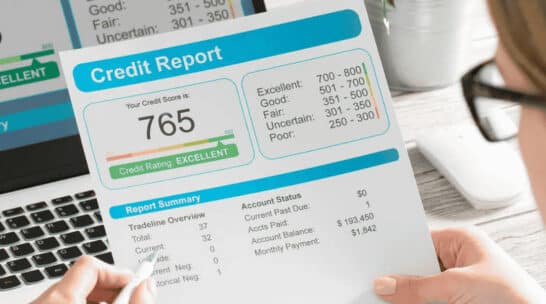In order to quickly process millions of tax returns, the IRS has certain things that automatically trigger an audit. It doesn’t necessarily mean you’ve done something wrong; just that the return you filed might suggest you’re trying to defraud the IRS.

Tax Audits
The audit can be conducted either by mail or in person, and there are three possible outcomes:
- The IRS decides all is well and the return stays the same.
- The IRS proposes a change and you agree to it and/or pay more taxes, interest or a penalty (and in extremely rare, severe cases, forfeiture of property and jail time).
- The IRS proposes a change, and while you understand it, you don’t agree. In the latter case, you can appeal or enter into a mediation with the IRS.
Top Audit Triggers Mistakes to Avoid

1. Reporting the wrong taxable income
You can’t lie on your federal income taxes, because both you and the IRS received your W-2 and 1099 forms, for both full-time employees and self-employed individuals.
Perfectly OK: If you make a small math error, the IRS will correct that.
Not OK: Guessing or lying about how much you’ve made, even if you are self employed.
The proof you need: Compare the W-2 or 1099 you receive from the company against your own records. If you think it is wrong, inform the company and ask that they file a corrected W-2 or 1099 with the IRS.
2. The homebuyer credit
If you bought a home for the first time after April 8, 2008 and before January 1, 2010, then you could have gotten the first-time home buyer credit. People who claimed the credit in 2008 treat it like an interest free loan of up to $7,500. Therefore, they must pay back the loan over 15 years by paying an additional tax. Those who claimed it in 2009 and 2010 (and 2011 for service members) do not have to pay it back unless they move out of the home in the first three years after the purchase.
However, this credit has been used and abused by those trying to defraud the IRS, so they will scrutinize anyone who claimed this credit in order to exclude people who are flipping homes or speculating in real estate. For that reason, they will be checking to see if you stayed in the home for at least 36 months (three years), as required.
Perfectly OK: You bought your first home, and you’ll be living in it for at least three years.
Not OK: You bought your first home … and then promptly resold it within three years for a profit.
The proof you need: Keep all records pertaining to the purchase of your home. For more information, and help with Audit Representation contact the tax experts at Tax Network USA today.
3. Huge donations on a small budget
The IRS will algorithm will be triggered if you’re giving away large amounts to charity when you don’t have that much income.
Perfectly OK: You gave a generous donation to your fraternity and then suddenly lost your job, making your income lower than expected.
Not OK: You’re getting creative with your charitable deductions. (“That 1995 Civic I gave to charity is worth at least $17,000!”)
The proof you need: Get your large donation appraised, file Form 8283 for any donation over $500, and make sure you keep all charity receipts and follow the IRS’s tips for charitable donations.

4. A steak dinner with clients
Rules for claiming this are strict, so it’s a smart idea to read up on them before trying to use this for fancy nights out on the town.
Perfectly OK: Deducting half of the cost of a normal priced meal where you talked with potential clients for your business.
Not OK: Deducting the cost of an extravagant steak dinner with rare champagne and other extra expenses, and then trying to deduct it again as a travel expense. To see more instances, read this publication from the IRS.
The proof you need: Keep all receipts, and record the dates and times, description of the expense, the business purpose and business relationship.
5. Using your car for business
Sure, a lot of people use their cars for some part of their business. But if you’re also using it to shuttle kids to lacrosse practice, it just doesn’t qualify. This is old hat to the IRS, so don’t think you can outsmart them.
Perfectly OK: The car is used solely for delivering wedding cakes to your clients.
Not OK: Sometimes you drop off deposits at the bank on your way to the gym.
The proof you need: Keep a record of your mileage, and calendar entries specifying your starting and ending addresses, and business purpose for every time you use the car for business.
6. Your home office
A lot of people think they can stretch the definition of a home office, which is why claiming it could trigger an audit.
Perfectly OK: A room where you keep your computer, phone, bookshelves and other supplies for work, and where you do the majority of your work and that is not used for any other purpose, especially personal use.
Not OK: A desk with a computer in the corner of your living room or guest bedroom where you work for a few hours a week.
The proof you need: If you want to take this deduction, make sure to read IRS Publication 587. It is very detailed, and even includes a flow chart to make sure you’re complaint with the tax code. You can also contact the tax professionals at Tax Network USA for help with your tax planning.

7. Tax errors
It seems obvious, but it needs to be on this list because it’s one of the top reasons for audits.
Perfectly OK: Simple tax mistakes like small mathematical mistakes. The IRS will fix these.
Not OK: Claiming the wrong deductions and credits, filing under the wrong status and stating the wrong income.
The proof you need: Double and triple check your work before filing and, again, keep meticulous records and proof for deductions and credits. If you need help knowing what you need as proof contact Tax Network USA today.
8. Round numbers
Did you really spend $150 on this and $100 on that? If every year you have tidy little numbers, this is a common business expense tax mistake that lends the IRS to believe that you’re making some things up. Or at least keeping terrible records.
Perfectly OK: Rounding to the nearest dollar.
Not OK: Doing things from memory and rounding up to the nearest $25.
The proof you need: Have documentation for your deductions and credits, and use the actual numbers on your forms so they match your receipts and other records.
9. A business that loses money
It’s not ideal that your business loses money. (That kind of misses the point, right?) If the IRS sees someone who has a full-time business, and reports a loss in more than three years out of the last five, it will make them look closer.
Perfectly OK: Things didn’t go well with your business this year or last year, and you took a loss.
Not OK: You have an expensive, full-time hobby like owning a vineyard or fixing up antique bicycles and you’re not even trying to make a profit.
The proof you need: You can claim a loss for your business this year—if it usually makes you a profit. You should have all the proper documentation as if it were a business, and prove that it made a profit for three out of five years.
If you have been audited get help from a trusted IRS expert.

If you need Professional Audit Representation Services, look no further, call Tax Network USA.
Call us at 1(855) 225-1040 or fill out our contact form and Tax Network USA will contact you ASAP for help with your all IRS tax audit.



